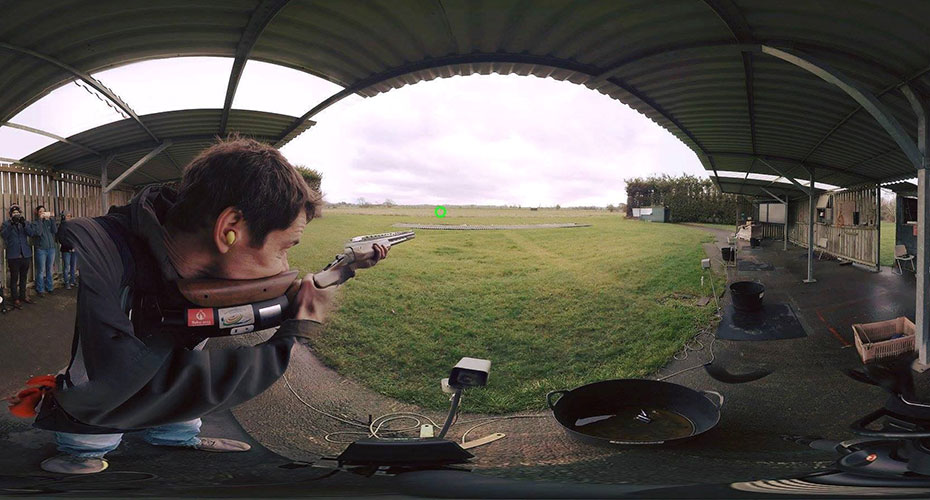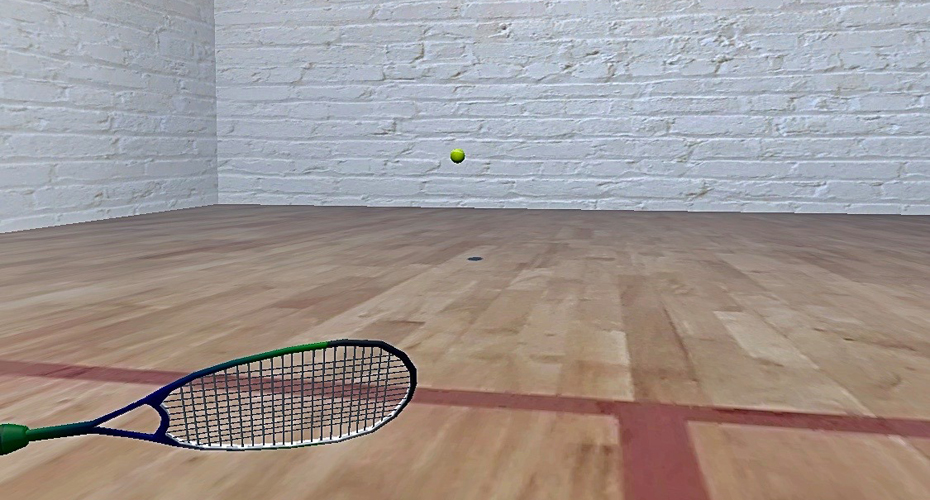Learning and performing sports skills in VR: implications for the ‘real-world’?
There is growing interest in the use of virtual reality (VR) for training sporting skills, but at present there is still limited evidence for its effectiveness. We are interested in whether skills learned in VR can be transferred to the real world to enhance sporting performance.
We have been examining the development of golf putting in VR in collaboration with colleagues from PACLab at the University of Leeds.

As VR poses a number of challenges for performing visually guided skills (unusual depth information and limited haptic feedback), we have been examining the effectiveness of VR training for golf putting performance, and what changes in eye movements may show us about skill learning.
We are also using VR to manipulate sensory information, to see how different cues can affect our actions and learning. For example, we are exploring how hand-eye coordination in racquet sports is influenced by sensory uncertainty and environmental physics.
Furthermore, Dr Gavin Buckingham is looking into how golf putting performance is affected by tactile cues, specifically the feeling of the club making contact with a ball. We also explore the use of 360-degree video footage for training perceptual-cognitive skills.

Together this research offers important implications for the field of sport science, and will shed light on how human performance can be enhanced, or potentially impaired, by virtual environments.
Latest publications
For more information, see our latest publications on this topic:
- Predictive eye movements are adjusted in a Bayes-optimal fashion in response to unexpectedly changing environmental probabilities
- Movement kinematic and postural control differences when performing a visuomotor skill in real and virtual environments
- The Integration of Tactile and Visual Cues Increases Golf Putting Error in a Mixed-Reality Paradigm
- The effect of performance pressure and error-feedback on anxiety and performance in an interceptive task
- Virtually the same? How impaired sensory information in virtual reality may disrupt vision for action
- Exploring sensorimotor performance and user experience within a virtual reality golf putting simulator
- The effect of a virtual reality environment on gaze behaviour and motor skill learning
- A critical analysis of the functional parameters of the quiet eye using immersive virtual reality
- Testing the construct validity of a soccer specific virtual reality simulator using novice, academy, and professional soccer players



